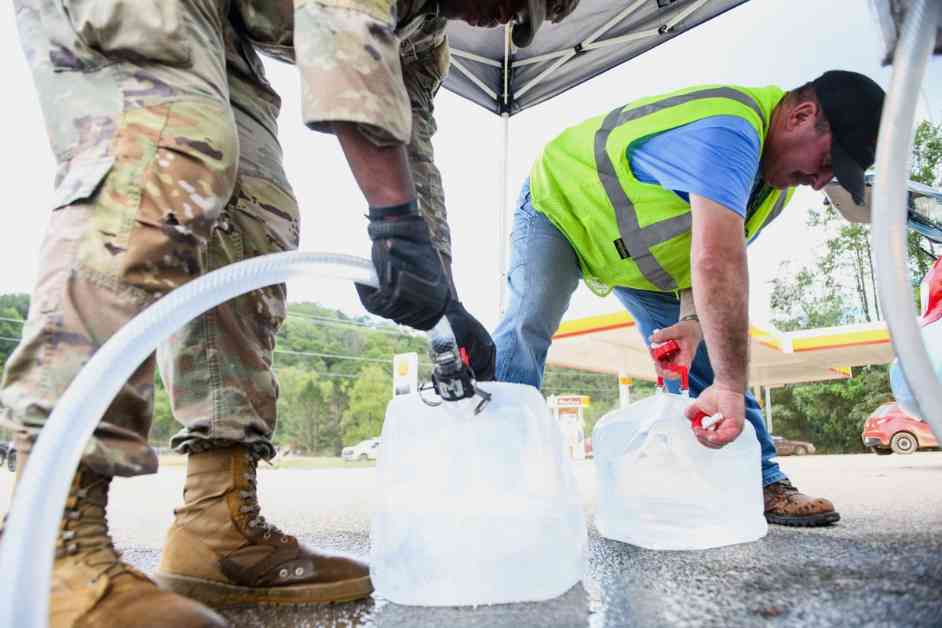Each day at 10 in the morning, a group of volunteers gathers outside Gold’s Gym just south of downtown Asheville, North Carolina. They come together to tackle the aftermath of Hurricane Helene, which brought devastating floods to the region. The volunteers organize themselves into groups and head out to perform a crucial task: flushing toilets. The storm left over 100,000 people without access to clean water, creating a public health crisis that extends to nearby mountain communities like Swannanoa and Black Mountain.
Federal and state officials have been sending water supplies, but the demand exceeds the available resources. As water service is gradually being restored, residents are advised to boil any water that is not bottled. The risk of disease outbreaks looms large as the floodwaters recede, leaving behind a contaminated mess that poses a threat to public health.
Dr. Jennifer Horney, a disaster epidemiologist from the University of Delaware, warns that residents may underestimate the potential contamination by bacteria, heavy metals, and other harmful substances present in the floodwaters. The lack of potable water has led to the formation of volunteer groups like the “Flush Brigade” in Asheville, who are working tirelessly to provide basic sanitation services to the community.
Despite the efforts of volunteers and nonprofit organizations, the scale of the devastation is overwhelming. The floodwaters have left a trail of destruction, contaminating soil, water sources, and air quality. Residents in towns along the French Broad River are grappling with foul odors and concerns about toxic substances in the environment.
Local officials are urging residents to refrain from using local waterways and to take precautions when dealing with contaminated areas. The aftermath of hurricanes and floods can lead to the spread of diseases like cholera, salmonella, and norovirus, posing a serious risk to public health. The presence of dust, silt, and mold further complicates the health hazards faced by residents in the affected areas.
Medical experts and public health officials are working to assess the long-term health impacts of the storm, but challenges in data collection and communication pose significant hurdles. The disruption of healthcare services and the loss of power have hindered efforts to track and respond to potential outbreaks of diseases.
As the communities in western North Carolina continue to recover from the devastation caused by Hurricane Helene, the focus remains on safeguarding public health and addressing the secondary consequences of the disaster. The resilience and collective efforts of volunteers and organizations are crucial in ensuring the well-being of residents in the region as they navigate the aftermath of the storm.










